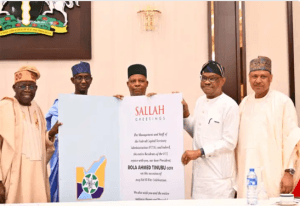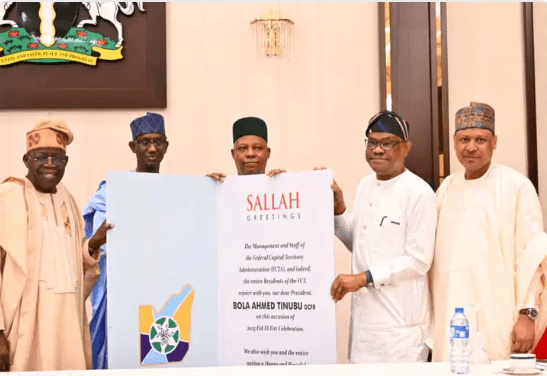Removal of FCT from TSA: What I Discussed with Wike – Tinubu
President Bola Ahmed Tinubu’s recent revelation about his conversation with Minister of the Federal Capital Territory (FCT), Nyesom Wike, before removing the FCT administration from the Treasury Single Account (TSA) sheds light on the intricate blend of governance, political strategy, and administrative pragmatism.
While the official narrative focuses on the efficiency gains and infrastructural developments spurred by this decision, the subtext hints at deeper political maneuvers aimed at consolidating power and ensuring electoral advantages for the ruling All Progressives Congress (APC).
A Shift in Fiscal Control: Justified Reform or Political Expediency?
The TSA, introduced under former President Goodluck Jonathan’s administration and rigorously implemented by the Buhari government, was designed to centralize government revenue collection, curtail corruption, and enhance transparency. By removing the FCT from this framework, Tinubu essentially granted Wike greater financial discretion, enabling faster project execution without the bureaucratic bottlenecks associated with the TSA.
On the surface, the results appear commendable—rehabilitated schools, improved healthcare facilities, and the long-abandoned Vice President’s residence finally receiving attention. However, the President’s own admission that he weighed the political benefits of this move suggests it was not purely a governance decision. “Would that give me any opportunity for my party APC to win the election in FCT?” he reportedly asked Wike—a question that underscores the high stakes of political control over Nigeria’s capital.
Wike’s Balancing Act: From PDP Strongman to FCT Power Broker
Wike, a prominent figure in the opposition People’s Democratic Party (PDP), has maintained an enigmatic political stance since aligning with Tinubu’s administration. His request to exit the TSA signals not only his desire for greater autonomy but also his potential evolution from an opposition leader to a key player within the APC-led government.
By giving Wike the leverage to deliver on developmental promises, Tinubu strengthens his government’s credibility while subtly enticing Wike—and his considerable political influence—towards APC. This move further entrenches the reality that governance decisions in Nigeria often double as political chess moves.
The Economic and Ethical Implications
While infrastructural improvements in the FCT are evident, questions linger about the long-term consequences of the TSA exemption. The TSA was established to prevent financial leakages; its weakening could open the door to unaccounted spending and opaque financial practices. Additionally, what precedent does this set for other states or federal bodies seeking similar exemptions?
From an economic perspective, the claim that food prices are lowering and hunger is decreasing as a result of this decision is tenuous at best. Broader macroeconomic factors, such as inflation, exchange rate fluctuations, and agricultural productivity, play far more significant roles in determining food security than the financial structure of the FCT administration.
Conclusion: A Calculated Risk with Political Dividends

President Tinubu’s move to remove the FCT from the TSA reflects the dual nature of governance in Nigeria—a blend of pragmatic administration and strategic political positioning. While the immediate effects seem positive in terms of project execution and service delivery, the long-term implications for financial accountability and political realignments remain to be seen.
For the APC, this could be a masterstroke in securing political goodwill in the FCT ahead of future elections. For Wike, it cements his role as a critical figure in Nigeria’s political landscape, capable of bridging party lines for pragmatic governance. The real question is whether this decision will ultimately serve the interests of ordinary Nigerians or merely reinforce the cycle of political patronage that has long defined the country’s governance structure.


